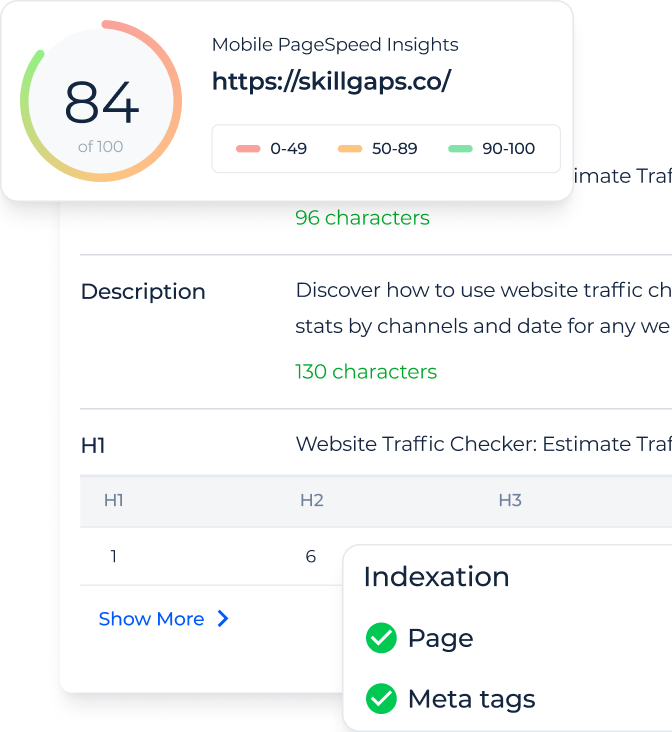What is the Local SERP Checker Tool?
The Local SERP Checker Tool is an instrument designed to monitor and analyze the performance of websites in search engine results on a local scale. The tool enables you to identify competitors for a specific page of your website, understand the dynamics of SERP positions, and track any new changes in competitors’ content related to a specific keyword.
Using the Local & International Google SERP Checker can help you by
Track Local Rankings: Monitor how a website ranks in search results for specific locations, clearly showing online visibility in targeted areas.
Multi Rank Tracking: Track rankings across various search engines, devices, and locations.
Competitor Analysis: Provides insights into competitors for each page of your website, tracks SERP position dynamics, and monitors updates in competitors’ content for targeted keywords.
Keyword Performance: Identify which local keywords drive traffic and conversions, enabling you to fine-tune the content and SEO strategies.
Customizable Reports: Generate tailored reports highlighting key local SEO metrics, making assessing and adjusting marketing strategies easier.
Key Features of the Tool
Unified Dashboard: Integrates key SEO metrics like traffic, rankings, and backlinks into one comprehensive view, offering a quick snapshot of website performance.
User-friendly Interface: Easy-to-navigate and accessible for users of all skill levels, simplifying the SEO analysis and implementation process.
Complete SEO Toolset: Offers a wide range of tools for on-page optimization, backlink analysis, site audits, and keyword research, updated regularly to reflect the latest SEO trends.
How to Use the Tool
Step 1: Enter your website’s URL
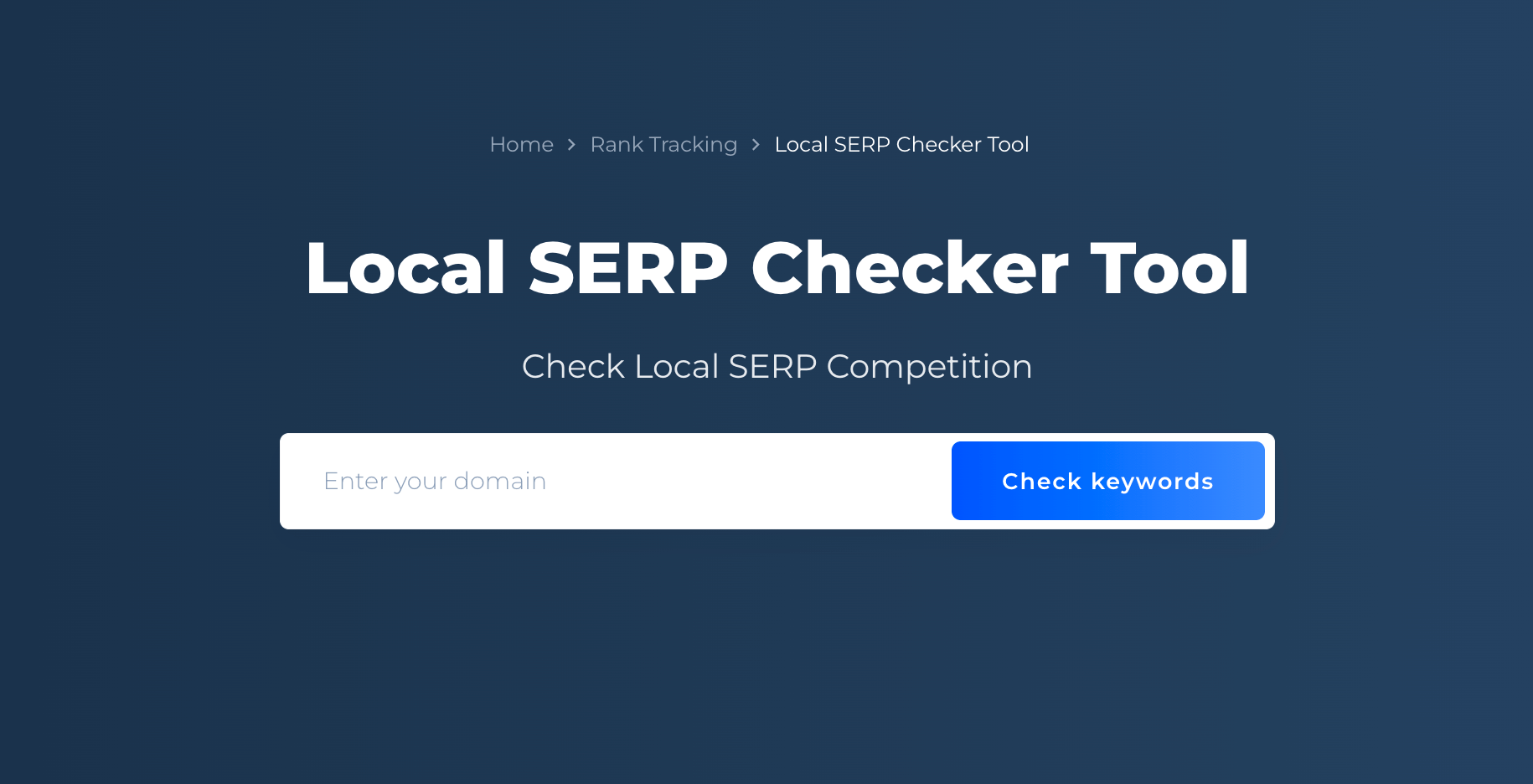
Step 2: Add and Manage Keywords for Tracking
Start by entering your target keywords into the ‘Add Keywords’ box. You can begin with suggested keywords and add more as required.
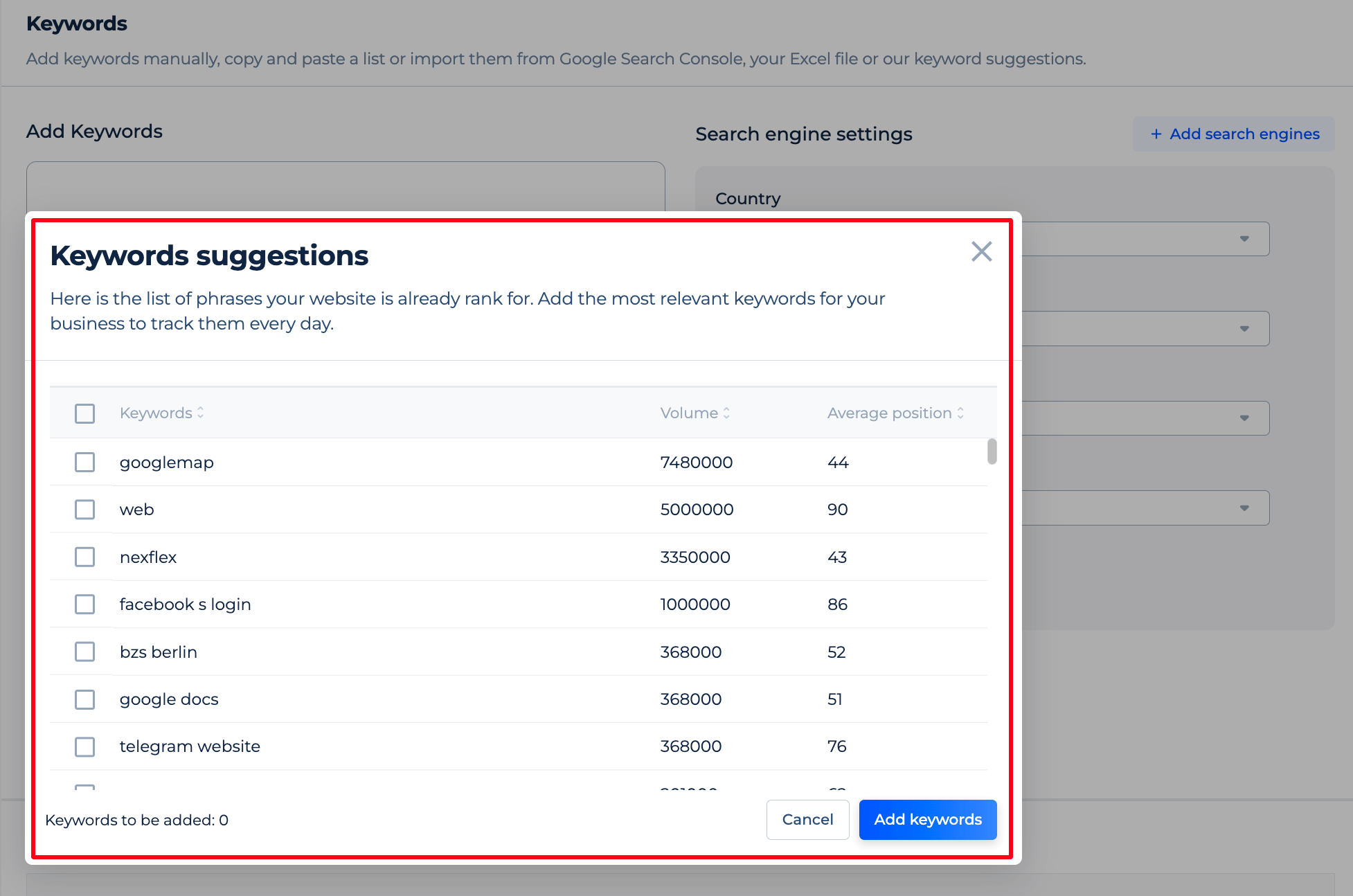
For existing keyword lists or new ideas, use the import options. Import queries from your Google Search Console or upload an Excel file. The ‘Keyword suggestions’ feature offers additional, domain-relevant keyword ideas.
Refine your tracking by setting preferences for ‘Country’, ‘Language’, and ‘Search Engine’. These choices ensure your SERP observations align with your target audience’s perspective.
To focus on specific local regions, input your desired areas in the ‘Locations’ field and select the relevant ones.
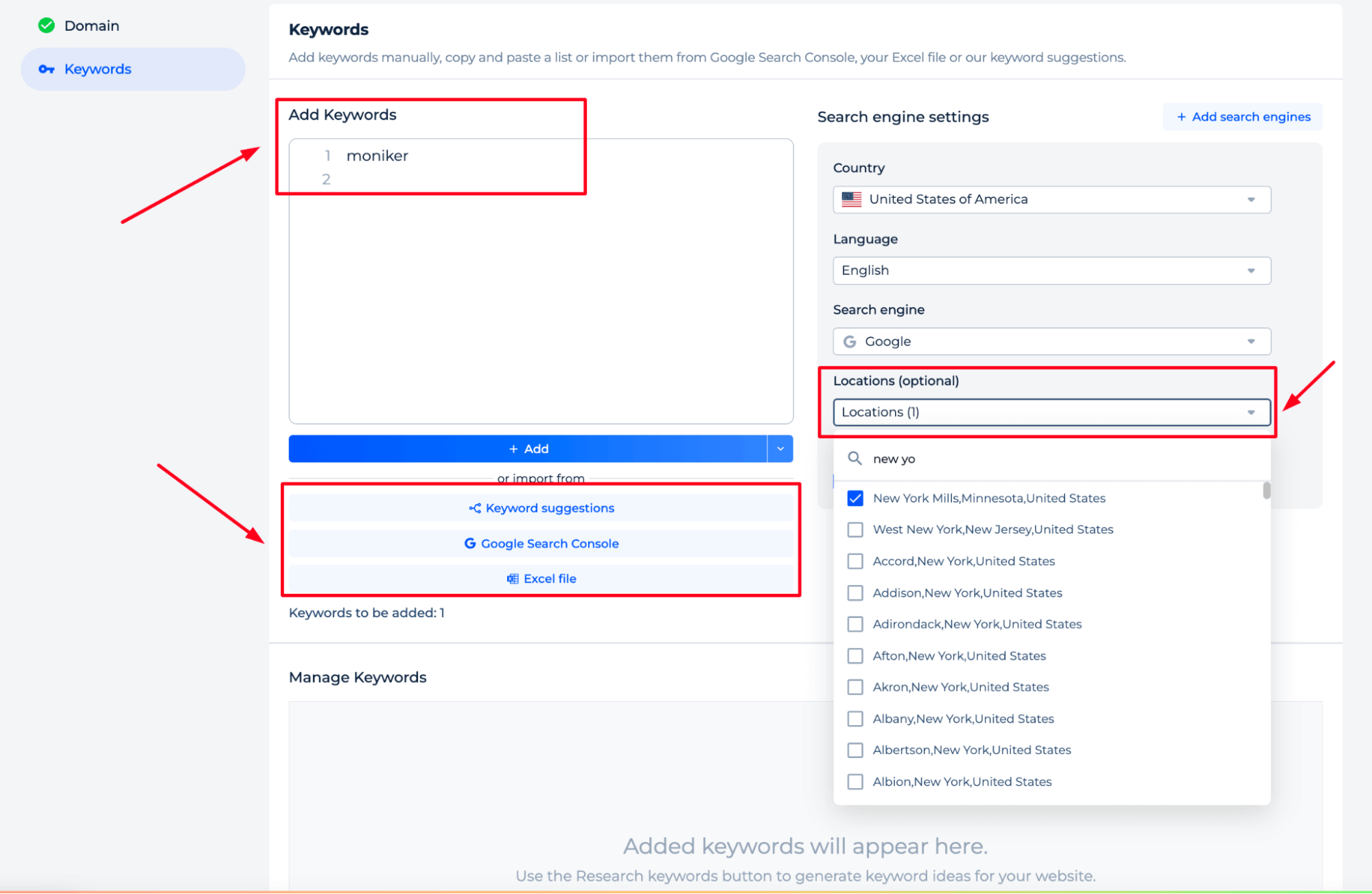
Keywords can be categorized into clusters and linked to particular pages for easier segmentation and future analysis.
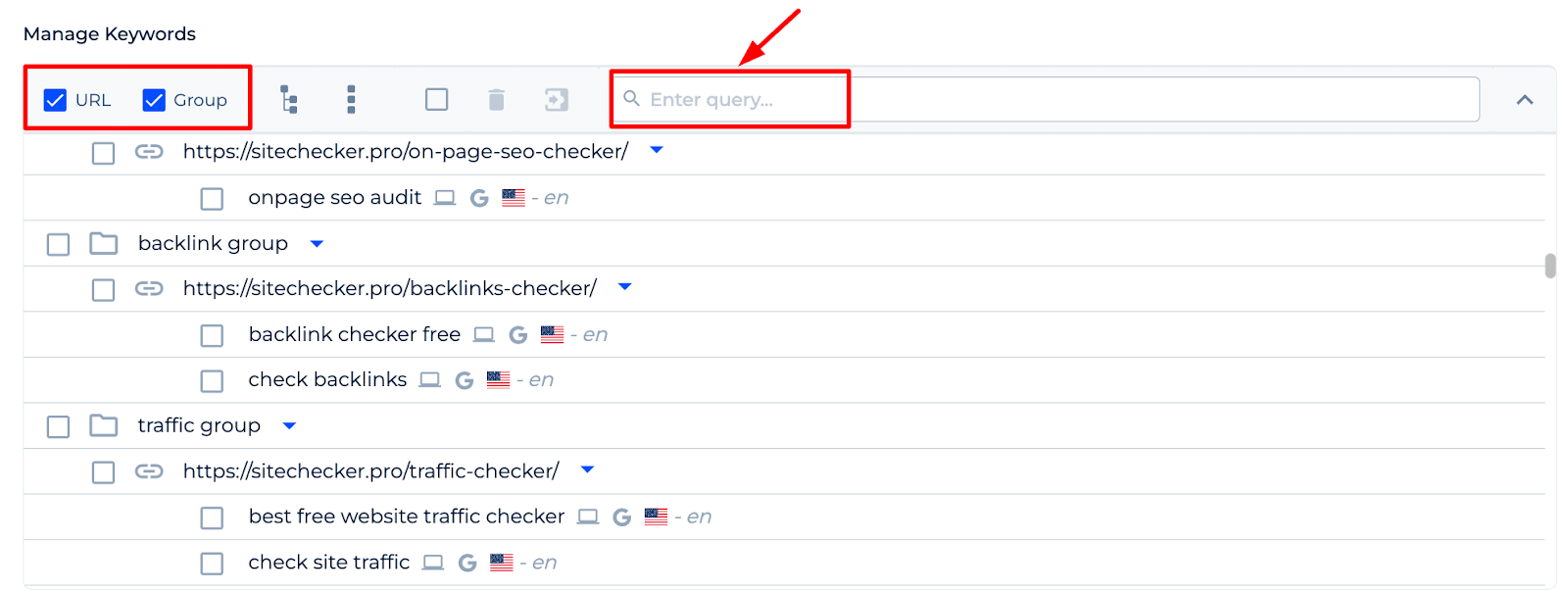
Step 3:Result
The Local City SERP Checker delivers key SEO insights, including comprehensive keyword and page analysis, customizable search filters by device, URL, country, or language, and a quick overview of search position rankings. It also evaluates visibility and indexation metrics and visualizes keyword ranking trends over time.
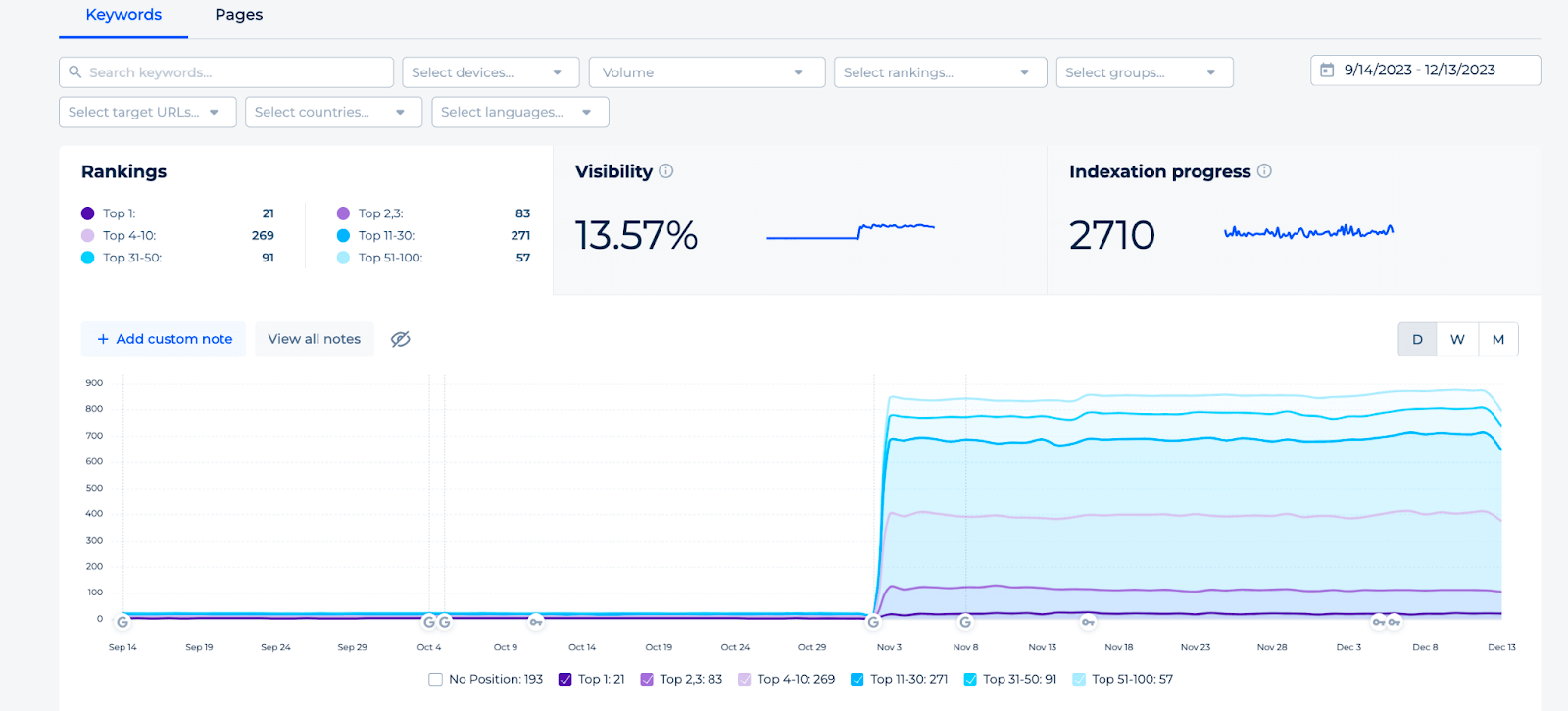
The Google Local SERP Checker provides a detailed keyword analysis interface, allowing for the monitoring of keywords along with essential metrics like search volume and current ranking. It displays SERP feature opportunities and cost-per-click data for each keyword. The tool also identifies web pages within your domain that are ranking for specific keywords and includes an export functionality for streamlined data reporting and analysis.
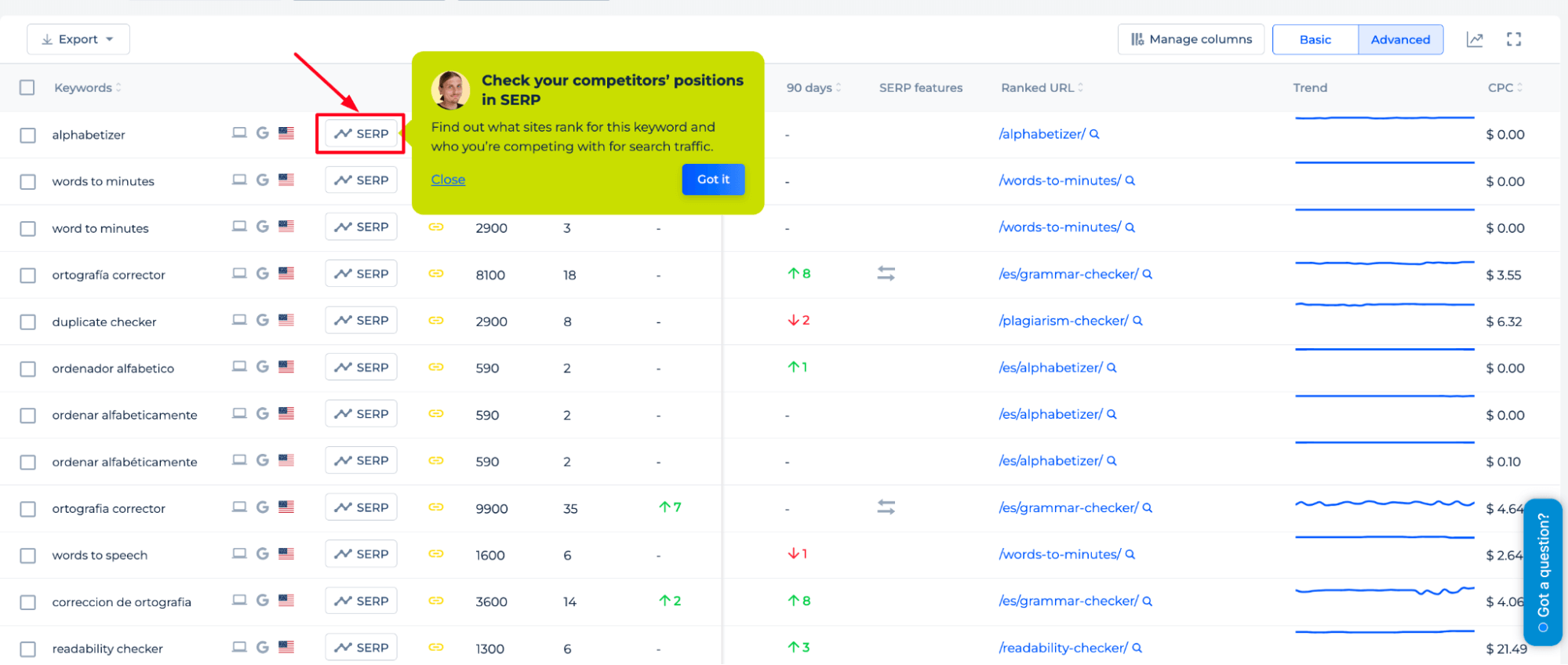
The Localized SERP Tracking Software showcases keyword SERP statistics, offering a timeline view of keyword rankings over a selected date range. The graph plots the positions of various keywords, providing a visual representation of their performance in search results.
Alongside this, a list of URLs indicates which pages are ranking for the keyword, helping to identify which content is most effective for SEO. The tool’s interface also allows for customization of the data display, such as filtering to view all results or only those pertaining to the domain.
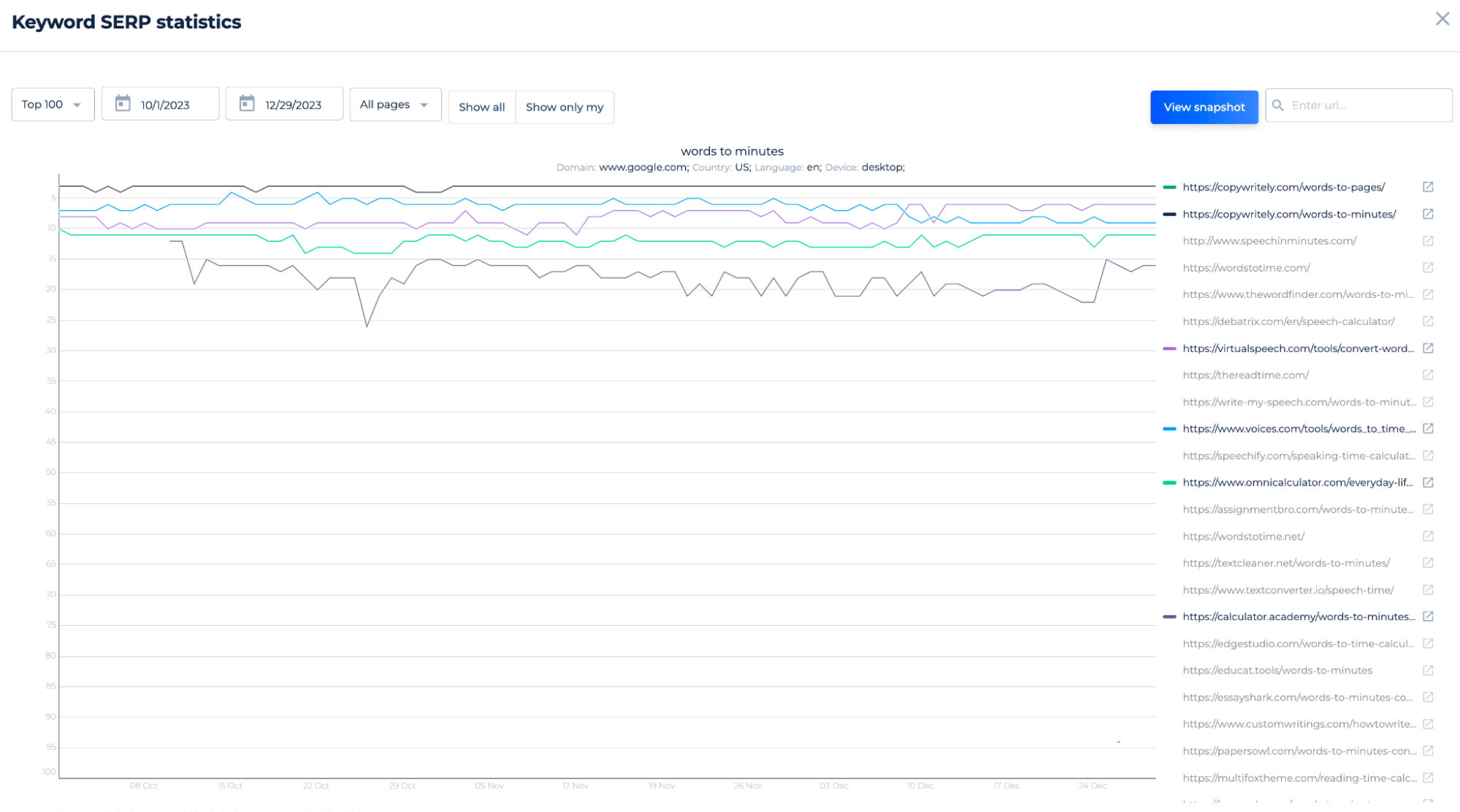
Additional Features of Local SERP Rank Tracker
The snapshot screen showcases a list of search results for the keyword phrase. It details various web pages in the search engine results along with a brief description of each site. The tool also includes options to refine the display of statistics, such as adjusting the date range and toggling between viewing all pages or just your pages. This functionality allows analyzing the SEO performance of specific queries and understanding which pages compete for the same keyword.
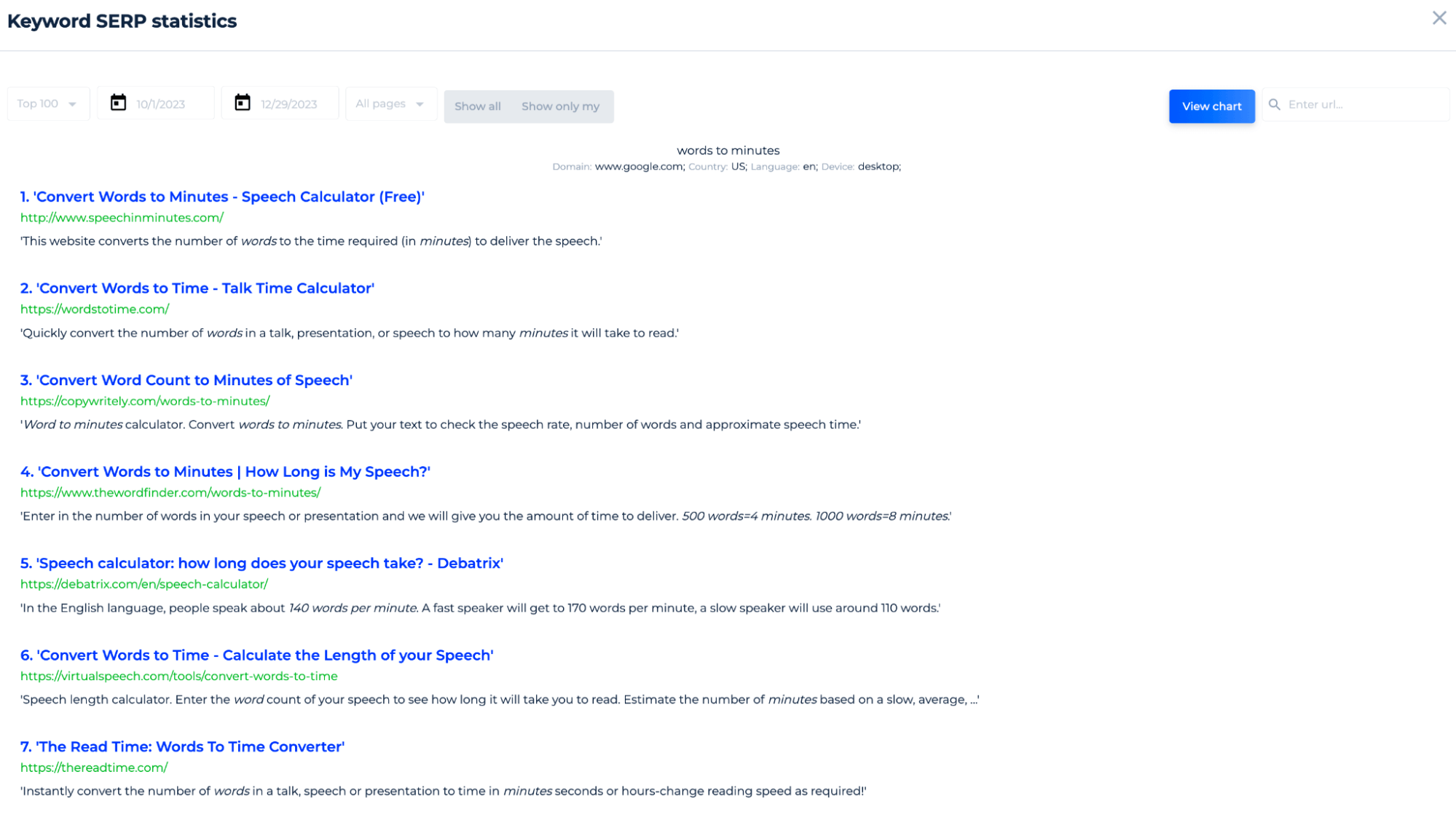
With SERP Alerts, you can receive notifications when there with changes in your keyword rankings. This ensures that you’re informed of any fluctuations, allowing for swift adjustments to your SEO strategy and maintaining your competitive edge.
Final Idea
The Local SERP Checker Tool is a versatile SEO instrument tailored for enhancing local online visibility. Its key features include ranking tracking, competitor analysis, keyword performance insights, and customizable reports. With a user-friendly dashboard and a comprehensive toolset, it’s ideal for monitoring and improving search engine rankings, offering valuable insights for strategic SEO optimization.










